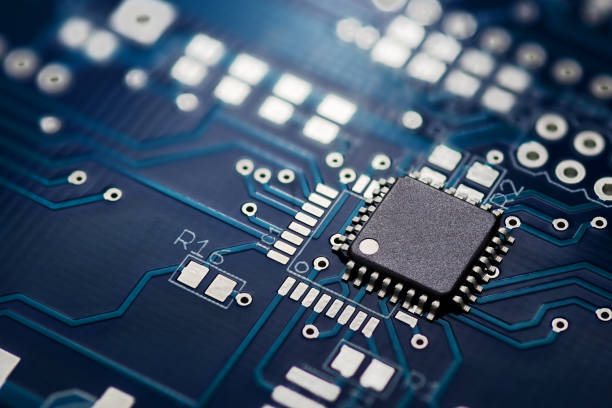Amplifier ICs (integrated circuits) are key components of many electronic projects. Whether you’re building a home audio system or designing a guitar amp, these little chips are essential to get it all done. For DIY enthusiasts, amplifier ICs are both attractive and practical, allowing you to design an audio system with few components while achieving impressive results. This guide will help you understand amplifier ICs, their types, and uses and includes a buying guide to help you make the right choice, including where you can buy them from Magnificette.
What is an Amplifier IC?
Amplifier ICs are chips designed to amplify audio signals, voltage, or current. Unlike discrete transistor amplifiers, these ICs combine multiple transistors, resistors, and other components into a single chip, making the design simpler, more reliable, and more efficient. There are different types of amplifier ICs, including operational amplifiers (op-amps), power amplifiers, and audio amplifiers.
This IC is versatile and is used in many devices – from portable audio systems to industrial sound equipment. For DIY hobbyists, they make it easy to build circuits that require sound amplification, such as radios, Bluetooth speakers, or other audio devices.
Types of Amplifier ICs
There are many types of amplifier ICs, each designed for different purposes. Knowing these types helps you choose the right one for your DIY project.
Operational Amplifiers (Op-Amps): These are some of the most popular amplifier ICs among DIY enthusiasts. Op-amps are very versatile and can be used for signal amplification, filtering, and other analog tasks. The LM741 is a well-known op-amp that is often used in DIY projects.
Power Amplifier ICs: These ICs deliver significant power to a load, often used in audio systems such as car amplifiers or home stereo systems. A common example is the TDA2030, an inexpensive audio power amplifier that is easy to use.
Audio Amplifier IC: This amplifier is specially designed for audio signals, providing the required boost for speakers. ICs like the LM386 are popular for simple audio projects. These ICs amplify audio signals with minimal additional components, making them ideal for beginners.
Common Applications of Amplifier ICs
Amplifier ICs are used in many consumer electronics and industrial systems. Here are some common uses:
Audio Systems: Amplifier ICs are found in almost every audio system that boosts the sound signal for output through speakers. From home theater systems to Bluetooth speakers, this IC handles the necessary audio amplification.
Signal processing: In devices where amplification is required for signal processing, such as radio, TV, or sensing devices, operational amplifiers are widely used.
Musical instruments: Guitar amplifiers and other musical instruments often use audio amplifier ICs to amplify signals. Their simplicity and low cost make them ideal for musical applications.
Buying Guide
When purchasing amplifier ICs for your DIY projects, keep these factors in mind to ensure you choose the right component:
Power Requirements: Check the power supply voltage and current requirements of the IC. Some amplifier ICs require a higher supply voltage to produce more power.
Gain and Frequency Response: Make sure the IC you choose has the right gain and frequency response for your project. For audio projects, you want an IC that provides good gain without distorting the signals.
Application-Specific Requirements: Choose an IC based on your specific use. For a low-power Bluetooth speaker, the LM386 may be sufficient. But if you’re building a powerful home audio system, a power amplifier like the TDA2050 might be better.
Package Type: Consider DIP (Dual Inline Package) for easy breadboarding or SMD (Surface Mount Device) package type for compact design.
Where to Buy?
You can buy amplifier ICs and other electronic components directly from www.magnificette.com, a trusted name for high-quality electronic parts. Magnificette offers a variety of amplifier ICs to suit all types of DIY and professional projects, giving you access to reliable and high-quality components.
Top Amplifier IC Recommendations
Here are some popular amplifier ICs to consider for your next DIY project:
LM386: Great for small audio projects. It requires only a few extra parts and provides good gain, making it ideal for portable speakers or radios.
TDA2030: This power amplifier is often used in home audio systems. It offers up to 14 watts of power, making it perfect for projects that need a bit more amplification.
NE5532: Known for its low noise, this op-amp is perfect for high-quality audio projects. It works well for pre-amplifiers, equalizers, and other audio applications.
Getting Started with Amplifier ICs
For DIY beginners, the easiest way to get started with amplifier ICs is to buy a simple kit or build your circuit using a breadboard. Most amplifier ICs require only a few external components, so you don’t need a lot of extra parts to get started. All you need is a suitable power supply, some capacitors and resistors, and your chosen amplifier IC.
Magnificette offers a wide range of electronic components to help you get started. Buying from a trusted source ensures that your components are genuine, which is key to a successful project. Always check the datasheets for your IC, they contain important information about how to connect and use the IC in your circuit.
Conclusion
Amplifier ICs are amazing components that can make your DIY audio projects shine. From simple audio amplifiers to powerful systems, there are options for everyone. When choosing an amplifier IC, always consider your project requirements in terms of power, gain, and application. Magnificette offers a wide range of electronic components, making it easy to find what you need for your next DIY adventure.
Whether you’re a beginner or a DIY electronics veteran, understanding amplifier ICs is a valuable skill. Start experimenting today and let your creativity guide your next exciting audio project!




